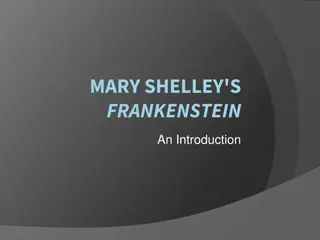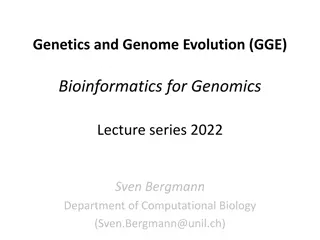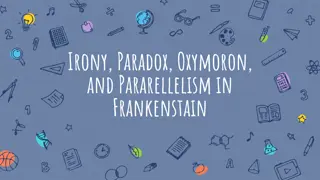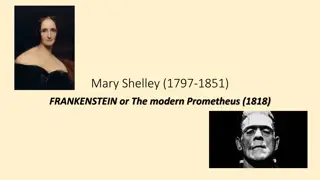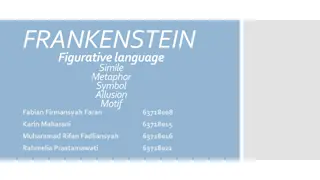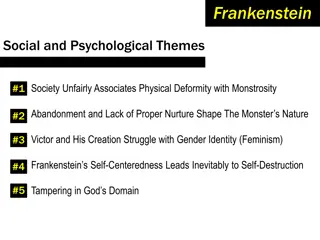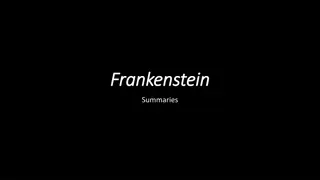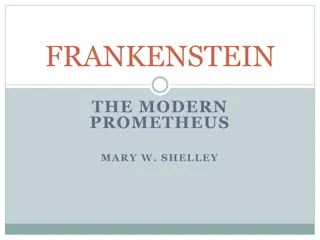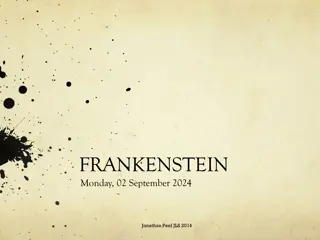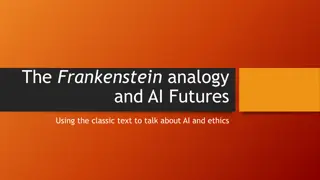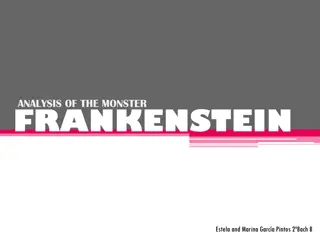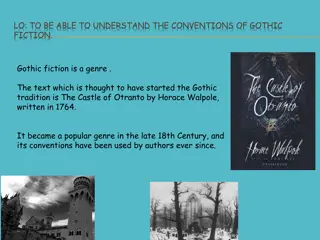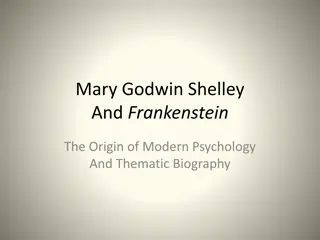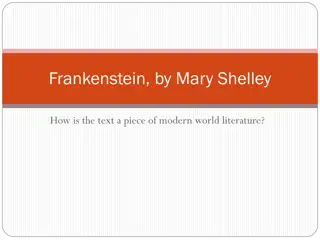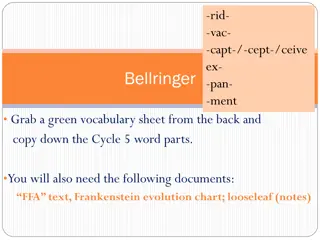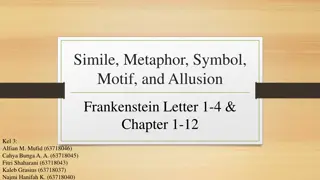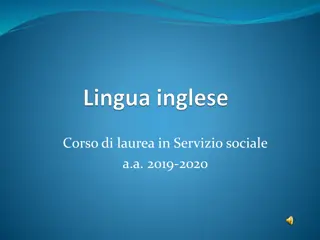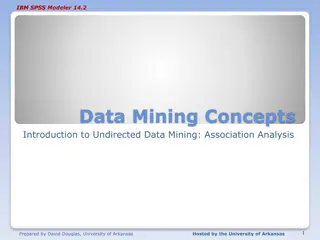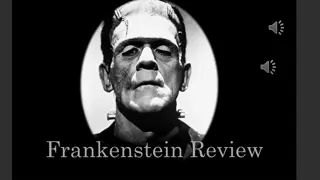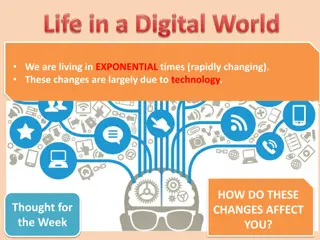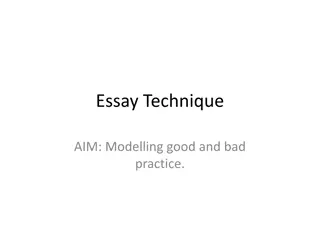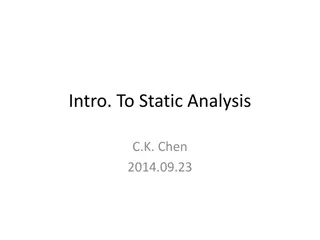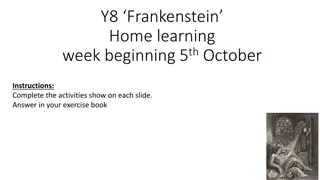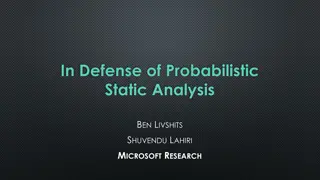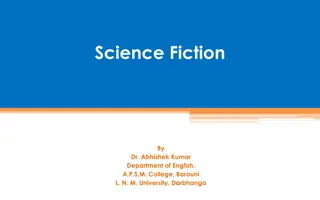Algorithm Analysis
Algorithm analysis involves evaluating the efficiency of algorithms through measures such as time and memory complexity. This analysis helps in comparing different algorithms, understanding how time scales with input size, and predicting performance as input size approaches infinity. Scaling analysi
1 views • 30 slides
Market Analysis (Project Formulation)
This detailed guide covers essential aspects of market analysis and project formulation in entrepreneurship, including feasibility analysis, techno-economic analysis, market demand analysis, steps in market analysis, and factors to consider for market demand analysis. Explore how to assess market de
2 views • 30 slides
Static Analysis Techniques Overview
Explore static analysis techniques such as syntactic analysis, dataflow analysis, and model checking. Understand the concept of basic blocks in static analysis and their boundaries. Dive into the opportunities provided by static analysis in summarizing program behavior without executing it.
9 views • 27 slides
Mary Shelley's Frankenstein: An Intriguing Introduction
Mary Shelley, born in 1797 to writers William Godwin and Mary Wollstonecraft, had a tumultuous life that greatly influenced her masterpiece, Frankenstein. Her novel, framed within a frame story by Robert Walton, explores themes of ambition, creation, and the consequences of playing god. The settings
4 views • 14 slides
Bioinformatics for Genomics Lecture Series 2022 Overview
Delve into the Genetics and Genome Evolution (GGE) Bioinformatics for Genomics Lecture Series 2022 presented by Sven Bergmann. Explore topics like RNA-seq, differential expression analysis, clustering, gene expression data analysis, epigenetic data analysis, integrative analysis, CHIP-seq, HiC data,
0 views • 36 slides
The Concept of the Noble Savage in Frankenstein by Mary Shelley
The concept of the noble savage, popularized by Jean-Jacques Rousseau and reflected in Mary Shelley's novel Frankenstein, explores the idea that humans are inherently good in their natural state. Shelley portrays this through the creature, who, despite his primitive nature, displays love and kindnes
0 views • 6 slides
Comprehensive Cost Management Training Objectives
This detailed training agenda outlines a comprehensive program focusing on cost management, including an overview of cost management importance, cost object definition, cost assignment, analysis, and reporting. It covers topics such as understanding cost models, cost allocations, various types of an
2 views • 41 slides
Irony, Paradox, Oxymoron, and Parallelism in Frankenstein
Exploring the concepts of irony, paradox, oxymoron, and parallelism in Mary Shelley's "Frankenstein." The discussion covers different types of irony such as situational, verbal, and dramatic, highlighting instances from the novel. Additionally, the concept of paradox is examined, showcasing statemen
0 views • 16 slides
Mary Shelley and Her Masterpiece: Frankenstein
Mary Shelley, born in 1797, was a talented writer known for her novel "Frankenstein, or The Modern Prometheus," published in 1818. The origin of the story dates back to a ghost story challenge in 1816, inspired by a nightmare. The narrative unfolds through multiple voices, including explorer Robert
1 views • 9 slides
Understanding Figurative Language in Frankenstein
Figurative language in Frankenstein plays a crucial role in conveying deeper meanings and creating vivid imagery. Similes and metaphors are used to draw comparisons between characters and objects, adding layers of complexity to the narrative. Through examples like comparing Elizabeth's soul to a shr
2 views • 15 slides
Mary Shelley's Background and the Inspiration Behind Frankenstein
Mary Shelley, born in England in 1797, was raised by her father after her mother's death. She was influenced by her father's student, Percy, a Romantic poet with a tumultuous personal life. The complex relationships and events in Mary Shelley's life, including elopements, suicides, and new love inte
0 views • 6 slides
Halloween Celebrations in Germany
Halloween has made its way to Germany from America, with people dressing up in spooky costumes, attending pumpkin festivals, and participating in traditional activities like trick-or-treating. The Darmstadt Fortress, also known as Frankenstein's Castle, hosts popular Halloween parties, adding a hist
0 views • 7 slides
Themes of Society and Psychology in Frankenstein
Society unfairly associates physical deformity with monstrosity in Mary Shelley's novel, Frankenstein. The abandonment and lack of proper nurture shape the monster's nature, while Victor and his creation struggle with gender identity. Frankenstein's self-centeredness leads to self-destruction, and t
0 views • 14 slides
Summary of Frankenstein: Friendship, Tragedy, and Guilt
Unlike Walton, Victor has friends in Elizabeth and Henry Clerval. As Victor delves into science, particularly alchemy, he discovers the power and potential destructiveness of knowledge. Tragedy strikes with Elizabeth's illness and his mother's death, leading Victor to study science seriously. His ac
0 views • 12 slides
Analysis of Romantic and Gothic Elements in Frankenstein by Mary Shelley
This analysis explores the parallels between Mary Shelley's Frankenstein and Romantic and Gothic literary elements, delving into themes of creation, hubris, nature, and the supernatural. The narrative revolves around Victor Frankenstein's pursuit of creating life, intertwined with Romantic ideals an
1 views • 11 slides
Exploring Contextual Ideas in Frankenstein by Mary Shelley
An analysis of contextual ideas related to the study of Frankenstein by Mary Shelley. Delve into the key connotations, connections with other literary texts, and the enduring resonance of a novel written almost 200 years ago. Understand the significance of the contexts in which literary texts are wr
0 views • 57 slides
Exploring Atmosphere and Themes in Frankenstein Through Letters
The novel "Frankenstein" by Mary Shelley unfolds through a series of letters that set the scene for a haunting narrative. The story begins with explorer Robert Walton writing to his sister about his ambitious voyage to the North Pole. Through letters, themes of loneliness, despair, and the danger of
0 views • 13 slides
Exploring AI Ethics Through Frankenstein Analogy
Delve into the ethical considerations surrounding artificial intelligence by examining parallels between AI creation and Mary Shelley's Frankenstein. This faculty workshop or classroom activity encourages insightful discussions on the implications of AI development and the responsibility that comes
0 views • 12 slides
Exploring Mary Shelley's Life and Frankenstein: An Intriguing Tale
Mary Shelley, the daughter of Mary Wollstonecraft and William Godwin, displayed literary talent from a young age. She met Percy Shelley at 19, leading to the creation of her famed novel, "Frankenstein". The story revolves around Victor Frankenstein, his creation, and the tragic consequences that fol
0 views • 10 slides
Analysis of the Monster Frankenstein by Estela and Marina García Pintos
The monster in Frankenstein, created by Victor Frankenstein, is a giant, hideously ugly creature with delicate emotions seeking companionship. Initially feared and rejected, he longs for connection and is betrayed by his creator. The monster's journey unfolds through loneliness, longing, revenge, an
1 views • 11 slides
Understanding Gothic Fiction Conventions
Explore the origins and key features of Gothic fiction, including dark settings, supernatural elements, and eerie atmospheres. Analyze gothic story openings and extract examples from works like Frankenstein to understand gothic features and emotional impact.
0 views • 25 slides
Exploring the Origins and Evolution of Gothic Literature
Gothic literature traces its roots back to Horace Walpole's novel "The Castle of Otranto," characterized by medieval settings, supernatural elements, and themes of terror and fear. Writers like Mary Shelley, Bram Stoker, and Edgar Allan Poe further popularized the genre with works such as "Frankenst
0 views • 6 slides
Data Analysis and Passage Analysis Project Proposal
This project proposal by Anthony Yang focuses on developing a Java program for data analysis and passage analysis. The motivation behind the project is to gain more knowledge in computer science and statistics-related topics while utilizing technology to extract useful insights from data. The propos
0 views • 8 slides
Mary Shelley, William Godwin, and Mary Wollstonecraft: Pioneers of Modern Thought
Mary Shelley, daughter of Mary Wollstonecraft and William Godwin, was influenced by her parents' radical philosophies. Wollstonecraft advocated for women's rights and education, while Godwin believed in individualism and anarchism. Their ideas shaped Mary Shelley's literary works, including "Franken
0 views • 19 slides
Analysis of "Frankenstein" by Mary Shelley as a Modern World Literature Piece
Frankenstein" by Mary Shelley, published in 1818, tells the story of Victor Frankenstein and his creation. The narrative unfolds through letters, revealing themes of creation, responsibility, and societal rejection. The novel delves into complex moral questions and explores the consequences of unche
0 views • 13 slides
Analyzing Character Development and Point of View in Literature
The content provides guidance on analyzing the development of characters in literary texts, evaluating authors' choices of point of view, and understanding how these elements influence readers' perceptions. It includes discussions on Victor's view of science in "Frankenstein," guiding questions for
0 views • 8 slides
Nature's Healing Power: Exploring Isolation and Connection in Literature
Delve into the themes of nature, isolation, and egoic thinking in literary works like "Frankenstein" and "A New Earth." Discover how characters find solace in nature amidst feelings of alienation and how shifting focus from self to the natural world can transform attitudes. Engage in creative activi
0 views • 8 slides
Gothic Literature Analysis and Exploration in ENG 111 Sequence
Dive into a captivating journey through Gothic Literature with in-depth analyses on works by H.P. Lovecraft, exploration of Vampire Literature, and literary examinations of classics like Dracula and Frankenstein. Uncover rhetorical strategies, thematic elements, and enduring impacts in this ENG 111
0 views • 5 slides
Literary Devices in Frankenstein: Analysing Simile, Metaphor, Symbol, Motif, and Allusion
Explore the intricate use of simile, metaphor, symbol, motif, and allusion in Frankenstein through excerpts from Letter 1-4 and Chapters 1-12. Dive into the vivid comparisons, symbolic representations, and layered meanings embedded in Mary Shelley's classic novel.
0 views • 11 slides
Exploring Classic Literature Themes and Characters
Delve into the analysis and personal reflections of iconic literary works such as "Pride and Prejudice," "Frankenstein," "Wuthering Heights," "Dr. Jekyll and Mr. Hyde," and "1984." Uncover themes of love, morality, duality, and societal control depicted in these timeless novels.
0 views • 24 slides
Introduction to IBM SPSS Modeler: Association Analysis and Market Basket Analysis
Understanding Association Analysis in IBM SPSS Modeler 14.2, also known as Affinity Analysis or Market Basket Analysis. Learn about identifying patterns in data without specific targets, exploring data mining in an unsupervised manner. Discover the uses of Association Rules, including insights into
0 views • 18 slides
Frankenstein's Tragic Story Unveiled Through Shocking Events
Embark on a journey through the tumultuous life of Frankenstein as we reveal the shocking events that shaped his existence: a mix of love, loss, and the pursuit of forbidden knowledge, leading to a creation that would haunt him forever.
0 views • 77 slides
The Impact of Technology: Reflections from Frankenstein
Living in rapidly changing exponential times, the influence of technology is profound. Through an extract from Mary Shelley's "Frankenstein," we delve into the consequences of scientific advancements. Victor Frankenstein's creation, brought to life through technology, elicits a range of emotions and
0 views • 6 slides
Portrayal of Science's Impact on Social Order in Literature
Explore the depiction of science's influence on social order in literary works like "Frankenstein" and "The Handmaid's Tale," comparing the portrayal of societal impacts, scientific creations, and thematic elements. Analyze the evolving perceptions of readers across different time periods and consid
0 views • 15 slides
Introduction to Static Analysis in C.K. Chen's Presentation
Explore the fundamentals of static analysis in C.K. Chen's presentation, covering topics such as common tools in Linux, disassembly, reverse assembly, and tips for static analysis. Discover how static analysis can be used to analyze malware without execution and learn about the information that can
0 views • 54 slides
Themes of Society and Psychology in Frankenstein
Society unfairly associates physical deformity with monstrosity in Frankenstein, shaping the monster's nature through abandonment and lack of nurture. The struggles of Victor and his creation with gender identity and self-centeredness lead to self-destruction, illustrating themes of tampering in God
0 views • 14 slides
Industrial, Microbiological & Biochemical Analysis - Course Overview by Dr. Anant B. Kanagare
Dr. Anant B. Kanagare, an Assistant Professor at Deogiri College, Aurangabad, presents a comprehensive course on Industrial, Microbiological, and Biochemical Analysis (Course Code ACH502). The course covers topics such as Industrial Analysis, Microbiological Analysis, and Biochemical Analysis. Dr. K
0 views • 16 slides
Frankenstein Home Learning Week Summary
In this home learning week focused on Frankenstein, students engage in various activities related to defining and deconstructing phenomena, exploring vocabulary like remorse, and analyzing the character of the Creature. Activities include defining terms, recalling story events, and contemplating the
0 views • 27 slides
Benefits of Probabilistic Static Analysis for Improving Program Analysis
Probabilistic static analysis offers a novel approach to enhancing the accuracy and usefulness of program analysis results. By introducing probabilistic treatment in static analysis, uncertainties and imprecisions can be addressed, leading to more interpretable and actionable outcomes. This methodol
0 views • 11 slides
Evolution of Science Fiction Literature
Science fiction genre, blending imaginative fantasy with scientific principles, has evolved significantly over time. Initially emerging in the late 1800s, it gained popularity alongside technological advancements. Theodore Sturgeon highlighted the essence of human stories within the genre. Iconic wo
0 views • 8 slides



